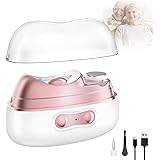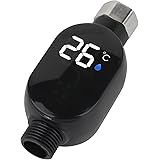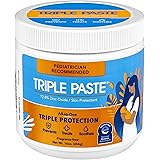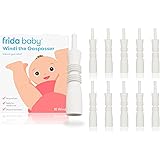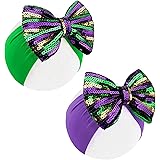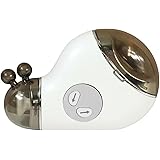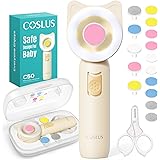Welcoming a new baby into your home is an unparalleled joy, but for many expectant parents, it also comes with a whirlwind of questions. One of the biggest queries often revolves around preparation: “What do we actually need for a newborn?” It feels like every list is endless, every product a ‘must-have’. You might have just finished watching the video above, feeling a mix of excitement and perhaps a touch of overwhelm.
Rest assured, you are not alone in this journey. Preparing for a newborn baby essentials list doesn’t have to be daunting. The truth is, while there are countless options available, a core set of items truly makes those first few months smoother for both baby and parents. Our goal here is to help you sift through the noise, focusing on the fundamental necessities that ensure comfort, safety, and practicality.
Think of this as your practical guide to gathering the absolute must-have baby items, designed to complement the visual overview you just saw. We will break down key categories, offering insights into why certain items are crucial and what to look for when making your selections. Building your baby’s environment should be an exciting process, not a stressful one. Let’s explore the core newborn necessities together.
Establishing the Perfect Sleep Environment for Your Newborn
Creating a safe and soothing sleep space is paramount for any newborn. Babies spend a significant portion of their early lives sleeping, making a secure and comfortable sleep setup a top priority. This foundational element supports healthy infant development and offers parents crucial peace of mind.
Safe Sleep Surfaces and Accessories
-
Crib or Bassinet: A safe sleep surface is non-negotiable. Newborns should always sleep on a firm, flat mattress in a crib, bassinet, or playard that meets current safety standards. Ensure there are no loose blankets, bumpers, or toys in the sleep area to prevent suffocation hazards.
-
Firm Mattress and Fitted Sheets: The mattress must fit snugly into the crib or bassinet with no gaps larger than two fingers. Use only fitted sheets designed specifically for the mattress size. Multiple sheets are useful for quick changes, especially during nighttime accidents.
-
Swaddles or Sleep Sacks: These are excellent alternatives to loose blankets. Swaddles help mimic the snug feeling of the womb, reducing the startle reflex and promoting longer sleep stretches. Once a baby shows signs of rolling over, transition to a sleep sack, which allows arm movement while still keeping them warm.
Essential Items for Feeding Your Newborn
Feeding is a central activity in a newborn’s life, whether you choose to breastfeed, bottle-feed, or a combination of both. Having the right tools on hand can significantly ease this process. Proper preparation ensures your baby receives adequate nutrition and allows for a more relaxed feeding experience.
Breastfeeding and Bottle-Feeding Supplies
-
Nursing Pillow: A U-shaped nursing pillow provides vital support for both you and your baby during feeding sessions. It helps position the baby correctly at breast height, reducing strain on your back and arms. This allows for comfortable and sustained feeding.
-
Burp Cloths: Stock up on these absorbent cloths. Newborns are prone to spitting up, and burp cloths protect your clothing and furniture from messes. Placing them over your shoulder or lap becomes second nature during and after feeds.
-
Bottles and Nipples (if bottle-feeding): If you plan to bottle-feed, either with expressed milk or formula, you will need several bottles. Start with slow-flow nipples appropriate for newborns to prevent overfeeding and ensure a comfortable pace. Choose bottles that are easy to clean and assemble.
-
Formula (if applicable): If using formula, have a starter supply on hand and consult with your pediatrician about the best type for your baby. Proper preparation and storage are key for safe formula feeding. Always follow the instructions precisely.
-
Bottle Brush and Sterilizer (optional): A dedicated bottle brush makes cleaning bottles and nipples thorough. While sterilization is often debated, some parents prefer a sterilizer (electric, microwave, or boiling) for peace of mind, especially in the early weeks.
Diapering Necessities for Your Little One
Diaper changes are a constant part of newborn care, happening many times a day. Being well-equipped makes these frequent tasks quicker and more hygienic. A well-stocked changing station is a true time-saver for new parents.
Diapers, Wipes, and Changing Station Setup
-
Diapers (Newborn Size): You will need a lot of diapers. Newborns typically go through 10-12 diapers per day. It is often wise to start with a smaller pack of newborn-size diapers, as babies grow quickly, and some might even skip this size altogether. Both disposable and cloth options are available.
-
Baby Wipes: Opt for gentle, unscented wipes, especially for sensitive newborn skin. Large packs are economical, but smaller travel packs are handy for diaper bags. Some parents prefer water-based wipes for the initial weeks.
-
Diaper Rash Cream: A good barrier cream is essential to prevent and treat diaper rash. Apply it proactively at each change, particularly before bedtime. Look for ingredients like zinc oxide.
-
Changing Pad with Covers: A changing pad provides a safe, comfortable, and easy-to-clean surface for diaper changes. Waterproof covers are a must, and having several allows for rotation during washes. A pad with safety straps adds an extra layer of security.
-
Diaper Pail (optional): While not strictly essential, a dedicated diaper pail with an odor-sealing mechanism can be a welcome addition to the nursery. It helps contain smells and reduces trips to the main trash can.
Bathing and Grooming for Newborns
Keeping your baby clean and comfortable involves a few specific items designed for their delicate skin. Bath time can be a special bonding experience when you have the right tools. Gentle products are key for maintaining healthy skin and hair.
Bath Time and Skincare Essentials
-
Baby Bathtub: A small, non-slip infant bathtub makes bathing a newborn much safer and easier than using a large adult tub. Some models fit in sinks, while others are stand-alone. Ensure it supports the baby’s head and neck properly.
-
Gentle Baby Wash and Shampoo: Choose fragrance-free, tear-free formulas specifically designed for newborns. Their skin is very sensitive and can easily be irritated by harsh chemicals or strong scents. A little goes a long way.
-
Soft Washcloths and Hooded Towels: Babies lose heat quickly after a bath, so a hooded towel helps keep them warm. Soft washcloths are gentle on their delicate skin for cleaning. Have a few on hand for regular rotation.
-
Baby Lotion or Oil: After bathing, a gentle moisturizer helps keep baby’s skin soft and hydrated. Opt for hypoallergenic, fragrance-free products. This helps prevent dryness and flakiness often seen in newborns.
-
Nail Clippers/File and Soft Brush: Newborn nails are surprisingly sharp. Use baby-specific clippers, scissors, or an emery board to keep them short and prevent scratches. A soft baby brush is also useful for gently styling hair and managing cradle cap.
Clothing for Comfort and Practicality
Newborn clothing needs to be comfortable, soft, and easy to put on and take off. Prioritize practicality over elaborate outfits, especially in the early weeks. Babies grow quickly, so resist the urge to overstock on tiny sizes.
Basic Wardrobe Staples
-
Onesies/Bodysuits: These are the workhorses of a newborn’s wardrobe. They snap at the crotch, keeping diapers secure and preventing shirts from riding up. Short-sleeved for warmer weather, long-sleeved for cooler. Stock up on a variety of these.
-
Sleepers/Footed Pajamas: Essential for nighttime, these one-piece outfits keep babies warm and cozy. Look for zippers or snaps that make diaper changes easier during the night. Footed designs eliminate the need for socks.
-
Swaddling Blankets: Beyond just for sleep, these large, lightweight blankets are versatile. They can be used for swaddling, as a nursing cover, a burp cloth, or a light cover in the car seat. Muslin cotton is a popular choice for its breathability.
-
Socks or Booties: Even in warmer weather, babies often need socks or booties to keep their feet warm. Choose ones that stay on well and are not too tight around the ankles. Avoid anything with loose threads.
-
Hats (Soft): A soft hat is important for keeping a newborn’s head warm, especially in the first few days or if the weather is cool. Choose breathable materials like cotton. Avoid hats that cover the face.
Health and Safety: Peace of Mind Necessities
Beyond the everyday care items, certain health and safety products are absolutely critical. These items address potential emergencies and ensure your baby’s well-being. Having them ready provides invaluable peace of mind for new parents.
First Aid and Safety Gear
-
Infant Car Seat: This is a non-negotiable item, required to leave the hospital. It must be properly installed before your baby arrives. Familiarize yourself with its features and installation instructions well in advance. Always check expiry dates and safety ratings.
-
Digital Rectal Thermometer: Accurate temperature readings are crucial for newborns. A rectal thermometer provides the most reliable measurement for infants. Learn how to use it correctly before your baby arrives.
-
Nasal Aspirator/Bulb Syringe: Useful for clearing a stuffy nose, which can be distressing for a newborn. A clear airway is important for feeding and sleeping. A simple bulb syringe or a fancier aspirator works well.
-
Baby Nail Clippers or File: As mentioned in grooming, keeping tiny nails trimmed prevents accidental scratches. This is a safety concern as much as a grooming one. Always be gentle and patient.
-
First Aid Kit (Baby Specific): Include items like infant Tylenol/acetaminophen (consult pediatrician first!), antiseptic wipes, and bandaids designed for sensitive skin. Having these ready can save a late-night pharmacy run. Always check with your doctor before administering any medication.
-
Baby Monitor (Video or Audio): While not strictly essential for safe sleep, a monitor allows you to keep an ear and eye on your baby from another room. Video monitors offer extra reassurance and can be particularly helpful for daytime naps. Choose one with good range and secure connectivity.
Travel and Outing Essentials
Leaving the house with a newborn requires careful planning and the right gear. These items ensure your baby’s comfort and safety when you venture out. Being prepared makes outings less stressful and more enjoyable for everyone.
On-the-Go Gear
-
Stroller: A stroller compatible with your infant car seat (a travel system) is incredibly convenient. It allows you to move your sleeping baby from car to stroller seamlessly. Consider features like lightweight design, easy fold, and ample storage.
-
Diaper Bag: A well-organized diaper bag is invaluable for carrying all your on-the-go newborn baby essentials. Look for one with multiple compartments, a changing pad, and comfortable straps. It should be spacious enough for diapers, wipes, a change of clothes, bottles, and snacks.
-
Baby Carrier or Wrap: For hands-free movement and close bonding, a baby carrier or wrap is fantastic. It keeps your baby snug against you, allowing you to run errands or do light tasks. Ensure it provides proper hip and head support for newborns.
Remember, preparing for a newborn doesn’t mean buying every single item on every list. Focus on these core newborn baby essentials to create a functional, safe, and loving environment for your new family member. Prioritizing these items will set you up for success in those precious early weeks and months.
Preparing with Care: Your Newborn Essentials Q&A
What is the most important advice for first-time parents buying newborn essentials?
Focus on fundamental necessities that ensure comfort, safety, and practicality, rather than feeling overwhelmed by an endless list of products.
What is the key to creating a safe sleep environment for a newborn?
A safe sleep surface is non-negotiable, meaning a firm, flat mattress in a crib or bassinet that meets safety standards, free of loose blankets or toys.
What basic items are needed for feeding a newborn?
Depending on your feeding choice, essential items include a nursing pillow, burp cloths, and if bottle-feeding, bottles, nipples, and possibly formula.
What are the core essentials for diapering a newborn?
For diaper changes, you will absolutely need a good supply of newborn-size diapers, gentle baby wipes, and diaper rash cream to prevent irritation.
What is one essential safety item required before bringing a newborn home?
An infant car seat is a critical, non-negotiable item that must be properly installed in your vehicle before you can leave the hospital with your baby.




